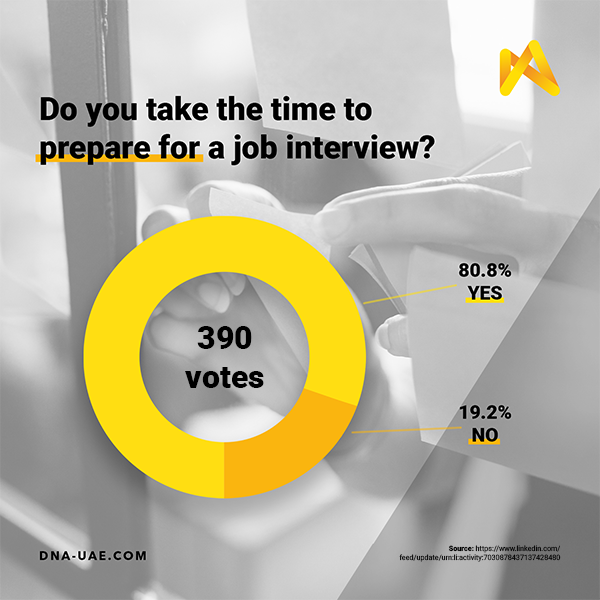Share this:
Let me be honest with you. Hundreds of people apply to us every time we run a recruitment process. We interview several dozen candidates from such a pool, while just a few go to the next stage – a job interview with the employer. At this point, all candidates are equally highly qualified. So, how can you stand out in such a competitive environment with only one chance to make a good impression?
What the employer is looking for
No matter what job interview style is used, you can be certain that almost all companies look for similar types of people. These can be broken down into three areas:
Knowledge
Suppose the role is technical or requires a specific understanding of an industry, a technology, or a management style. In that case, you must ensure you know and can demonstrate this during a job interview. For example, a supply chain manager role will require someone who understands and has experience in forecasting, stock in and stock out managing third-party relationships, sourcing, and CPS management.
Attitude
Willingness to learn: no matter how much knowledge and skill you have, there will always be more to learn from your next employer.
Respectful: Someone who is respectful of everyone’s time, knowledge, and skill, no matter what their level or rank is in an organization.
Someone humble yet assertive while being punctual and organized.

Skills
Leadership: This does not mean you are a “born leader,” but you can appropriately motivate and manage a team. A leader also knows when to sit back, listen, and let someone else take charge.
Collaboration: Someone who can work in various teams across different cultures and leverage diversity to achieve greater results.
Problem-solving: Someone who has evidence of being able to solve personal and organizational problems.
Creativity: Someone who can bring new, fresh ideas to the business.
Capacity: Someone who can apply the 80:20 principle to their work to achieve outstanding results in the most efficient time. Someone who can handle multiple priorities and still meet deadlines.
Practical Tips
- Double-check the job interview date, time, and location, and be familiar with the interviewer’s name and title.
- Prepare your interview outfit in advance—all of it. Ensure your appearance is both smart and comfortable. You cannot be overdressed for an interview, and unless you have been told to come smart/casual, you should always wear a suit.
- Familiarize yourself with the journey to the location to ensure you arrive quickly. Anticipate delays, especially on unknown routes. Contact your interviewer swiftly if you are unavoidably delayed on the day. Arriving on time shows that you are responsible, punctual, and respectful of others’ time. Also, leave yourself enough time to use the restroom and freshen up if necessary. Remember that you start making an impression on your prospective employer when you arrive at the location.
- Ensure the mobile phone is turned OFF before arriving.
- Be courteous to the receptionist and any other staff you meet before your interview. They are often asked for their opinion of you, and it may even influence the final selection.

Do Your Homework
Find out as much information as possible about your prospective employer in advance. Many now have websites that are packed with information. Familiarize yourself with mission statements, past performance, future goals, and current analyst ratings. Pay particular attention to the organization’s culture and visit its recruitment pages to view the skills and attitudes they seek. Be aware that if your prospective employer does have a comprehensive website, you may seriously compromise your chances if it becomes apparent you have not taken the time to research it. Doing this research will help you understand the employer’s culture and values and will give you an insight into the kind of person they are looking for.
At the same time, use the time to prepare some constructive questions or conversational points you can discuss at the end of your interview. Also, familiarize yourself with common interview questions and have well-thought-out answers prepared. Practice speaking about your experiences, strengths, weaknesses, and goals.
READ MORE ABOUT COMMON INTERVIEW QUESTIONS:
10 Common Job Interview Questions and How to Answer Them

The Interview
Greet your interviewer standing with a strong, firm handshake and a smile! Good body language is vital. Be confident and positive. Sit up straight with both feet on the floor. Speak clearly and confidently. Try and maintain a comfortable level of eye contact throughout. A standard interview will generally start with an introductory chat, moving on to questions about your application and experience. General information about the company and role may follow, finishing with an opportunity to ask your questions. Be familiar with your resume and prepared to answer questions from it.
Follow up
After the interview, it is always a good idea to send a thank-you email to the interviewer, reiterating your interest in the role and thanking them for their time.
In conclusion, making a positive impression during a job interview is crucial in landing your dream job. By presenting yourself professionally, researching the company, and highlighting your skills and experiences, you can show the hiring manager you are a strong candidate for the position. Remember to be confident and genuine, and listen actively to the interviewer’s questions. With these tips in mind, you will be well on your way to leaving a lasting, positive impression and making the best of your interview experience. As a talent acquisition consultant, I can assure you that taking the time to prepare and make a great impression can make all the difference in securing the job offer. Good luck with your next interview, and make sure to put your best foot forward!